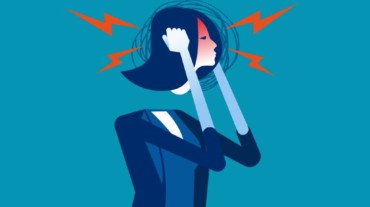
As the World Brain Tumour Day just went past, I came across the true story of a 24-year-old nurse from Scotland. While working night shifts at a hospital, she gradually realized that she was increasingly losing her balance, and her mind over trivial things. But what she felt was just “clumsiness”, turned out that she had a brain tumour. Yes, there can be several brain tumour symptoms that we often don’t realize.
According to a report by The Mirror, the nurse, Fern Cameron, had also started to get double vision, found herself more short-tempered than ever before and easily riled up. That’s when she was asked to go for a health examination to a neurologist, and an MRI scan revealed a large brain tumour.

It made me wonder if behavioural changes and temper tantrums could also be a brain tumour symptoms?
So, Health Shots reached out to Dr Shivakumar S Kupanur Consultant Neurosurgeon and Head of Neurosurgery Department, SPARSH Hospital, to understand this.
The expert explained that brain tumours, though common, are mired in lots of myths and misconceptions.
“The incidence of central nervous system (CNS) tumours in India ranges from 5 to 10 per 100,000 populations with an increasing trend and accounts for 2 percent of malignancies,” shared Dr Kupanur, explaining why people must take cognizance of its symptoms, diagnosis and treatment.
According to Dr Kupanur, all brain tumours will not cause behavioural disturbance because. Do you wonder why? Read on!
“It depends on the location of the tumour. If it’s in a particular location, then it will result in certain symptoms. For example, if it’s in the speech area, then there might be disturbances in speech. If it’s in the motor area, then there might be weakness on a specific side of the body. If the tumour is in the frontal lobe, then there might be psychological symptoms such as aggressive or deviated behaviour,” he added.
However, the expert said, “Behavioural disturbances are not that prominent unless the tumour is very big. ”

There is a cure for brain tumours, especially the benign cases which are referred to as meningioma. If the patient undergoes the excision procedure then there is a cure. There are other low grade tumours which if removed completely and if the patient is given radiation and chemotherapy, they can lead a normal life for 7-12 years unless there is a recurrence, said Dr Kupanur.
Select Topics of your interest and let us customize your feed.
PERSONALISE NOWThere are a few other brain tumours like epidermoid and dermoid which can be treated with excision. But if the tumours are very cancerous, for example Glioblastoma, the lifespan is hardly a few months.
Doctors may suggest following brain tumour treatments according to their type, grade, molecular staging of the tumour, position of tumour and general health of the patient.
* Surgery
* Radiotherapy
* Chemotherapy
* Steroids
* Anti-seizure medication

Brain tumour symptoms may be non-specific and may include the following:
* Headache
* Altered mental status
* Nausea
* Vomiting
* Weakness
* Gait disturbance
* Focal seizures
* Visual changes
* Speech deficits
* Focal sensory abnormalities
* New onset of seizures in adults or a headache associated with weakness or numbness of the limbs.
If you notice any of these symptoms, the first step is to see your doctor. Your doctor will ask about your symptoms and perform a physical exam. They may also order an MRI or CT scan to confirm the diagnosis.
Get Latest Updates on Preventive Care, Family Care, Reproductive Care, Self Care